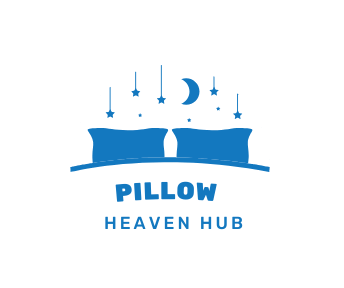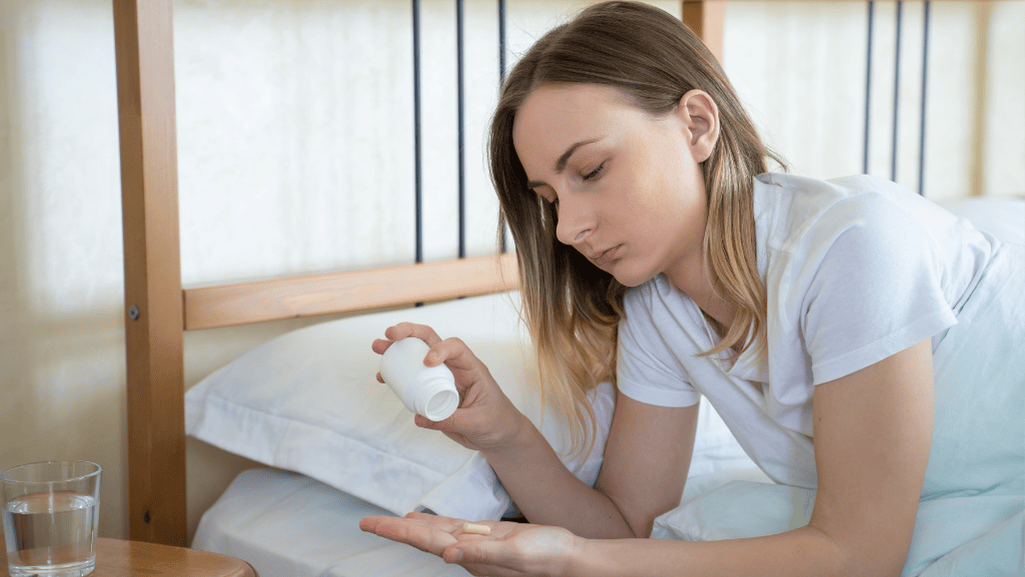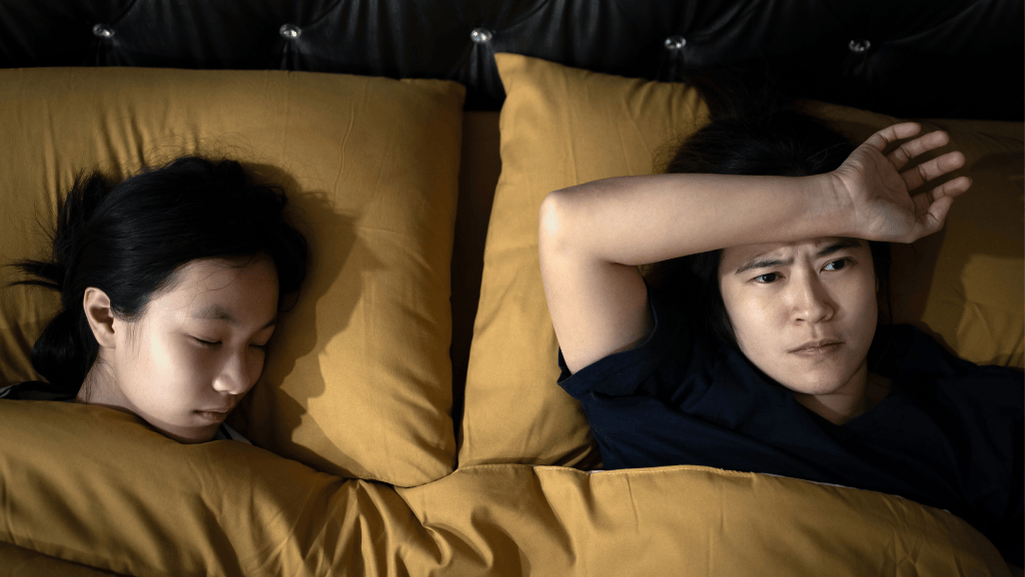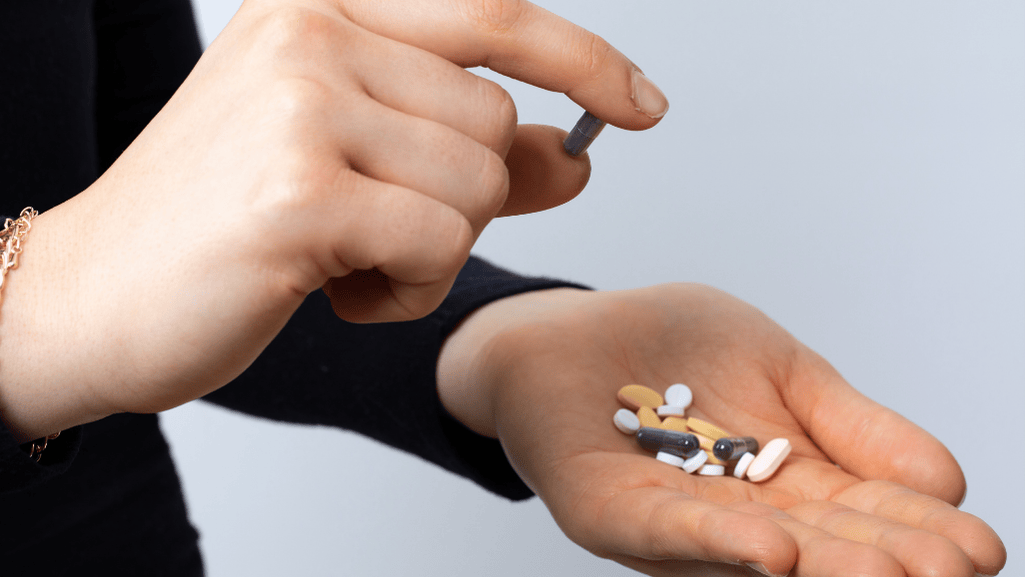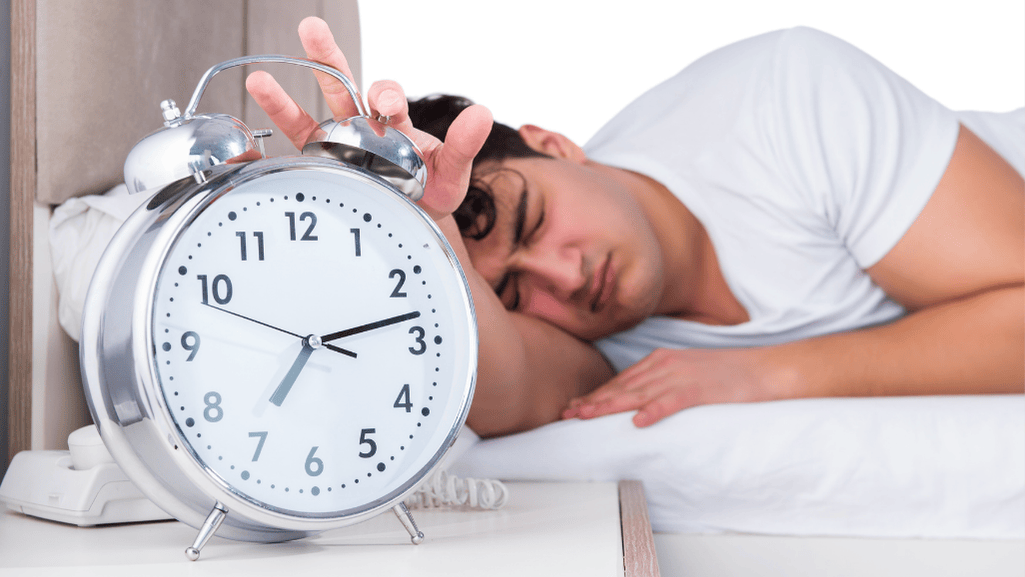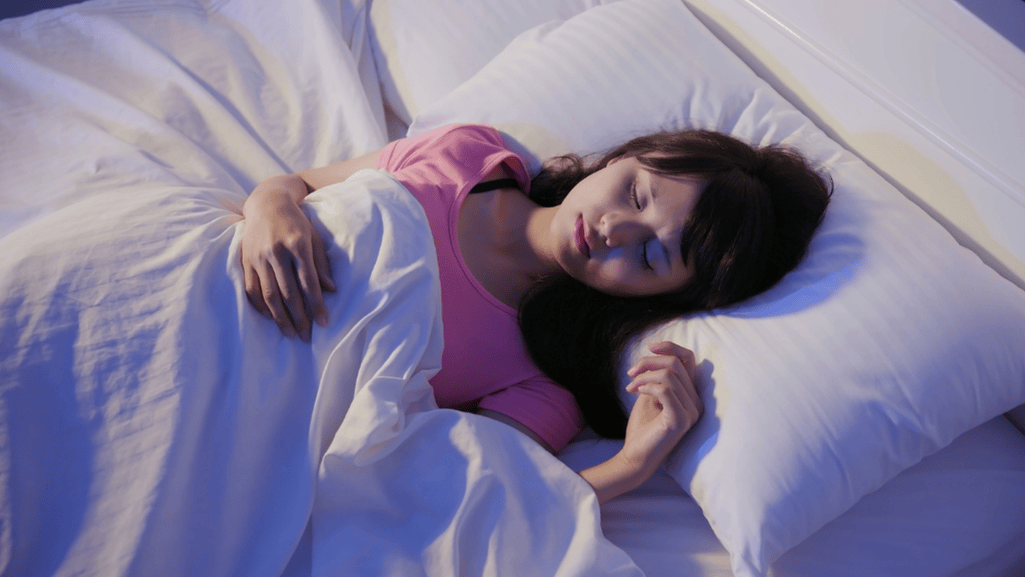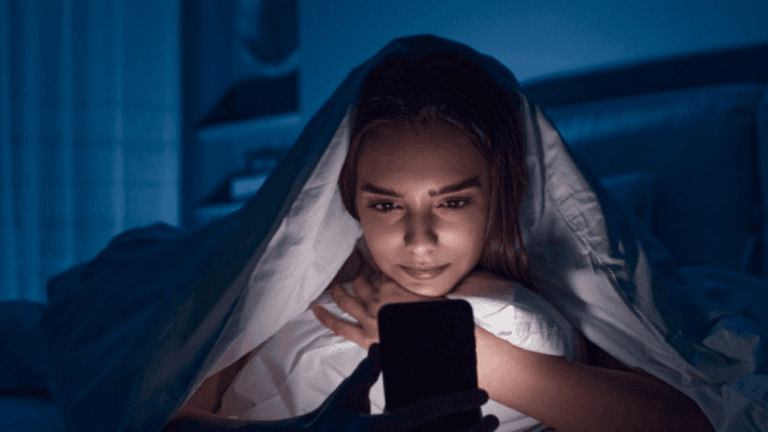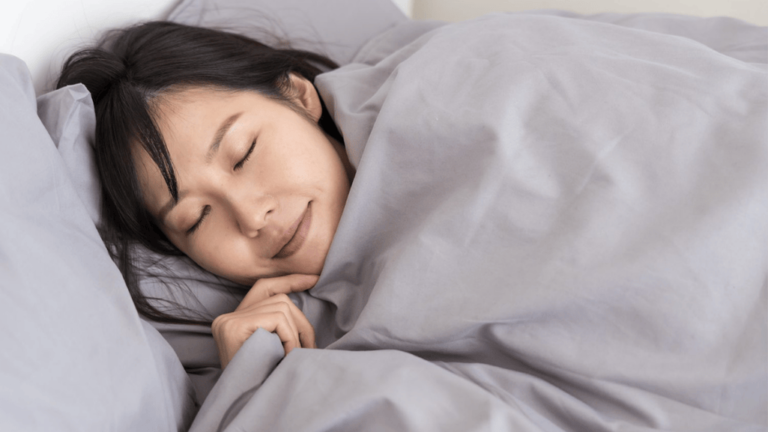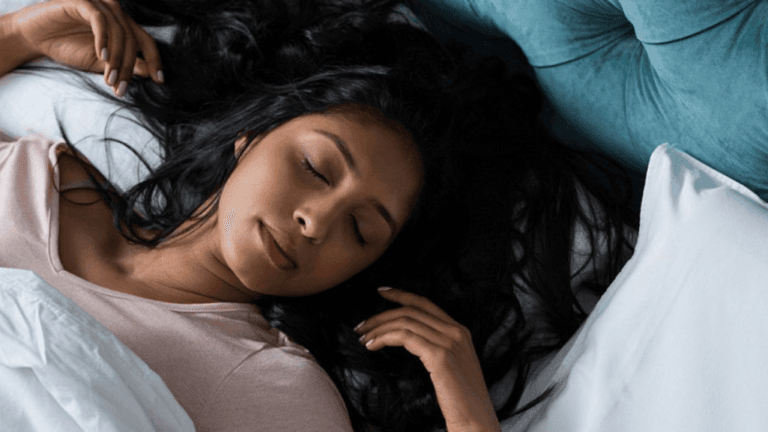Are you struggling with anxiety and insomnia? You’re not alone. Millions of Americans face the same challenges, with one-third of adults not getting the recommended amount of sleep and about 20% living with a mental illness. Anxiety can make it difficult to fall and stay asleep, while sleep deprivation can worsen anxiety symptoms, creating a vicious cycle that leaves you feeling exhausted and overwhelmed.
If you’ve tried lifestyle changes and behavioral therapies without success, your healthcare provider may recommend prescription sleeping pills as a short-term solution. These medications can help break the cycle of sleeplessness and provide much-needed relief from anxiety symptoms. However, it’s essential to weigh the benefits against the risks, as sleeping pills can have side effects and may lead to dependence if used long-term.
In this article, we’ll explore the connection between anxiety and insomnia, discuss the various types of sleeping pills available, and provide tips for safely using these medications to find relief from your symptoms. Whether you’re looking for a quick fix or a long-term solution, we’ve got you covered with the latest research and expert advice on sleeping pills for anxiety.
Key Takeaways
- Anxiety and insomnia often go hand in hand, creating a vicious cycle that can be difficult to break without intervention.
- Prescription sleeping pills, such as non-benzodiazepines, benzodiazepines, antidepressants, and melatonin-like medications, can provide short-term relief from anxiety-related insomnia.
- It’s essential to work closely with your healthcare provider to find the right medication and dosage for your needs, as sleeping pills can have side effects and may lead to dependence if used long-term.
- Lifestyle changes, cognitive-behavioral therapy, and relaxation techniques can enhance the effectiveness of sleeping pills and provide long-term relief from anxiety and insomnia.
- If you’re struggling with severe or persistent symptoms, don’t hesitate to seek professional help from a mental health provider or sleep specialist.
Understanding Anxiety and Insomnia
Anxiety disorders are the most common mental health problem in the United States, affecting approximately 20% of American adults. These disorders involve intense feelings of worry, tension, and uneasiness that become persistent and excessive, hindering daily activities. While most people experience some level of anxiety from time to time, anxiety disorders can significantly impair one’s quality of life. Around 43% of adults have described having mild impairment of their life from anxiety, while 33% said it was moderate, and nearly 23% said it was severe.
Insomnia, characterized by difficulty falling and staying asleep, is the most common sleep disorder and is recognized as a symptom of anxiety disorders. In fact, nearly 50% of people with depression are also diagnosed with an anxiety disorder, highlighting the strong connection between mental health and sleep quality. People with anxiety commonly experience insomnia symptoms, sleep apnea, poor sleep quality, and excessive sleepiness while awake.
The Connection Between Anxiety and Sleep Problems
Excessive worry, a hallmark of anxiety disorders, can significantly interfere with sleep. “Hyperarousal” is a critical component that contributes to the development of insomnia, as the heightened state of alertness and responsiveness can make it difficult to relax and fall asleep. Specific anxiety disorders, such as Generalized Anxiety Disorder (3.1%), Panic Disorder (2.7%), Social Anxiety Disorder (7.1%), Specific Phobias (9.1%), Obsessive-Compulsive Disorder (1.2%), and Post-traumatic Stress Disorder (3.6%), can all contribute to sleep problems.
The relationship between anxiety and sleep is bidirectional, meaning that anxiety can cause sleep problems, and sleep problems can exacerbate anxiety. For example, over 90% of people with PTSD have reported symptoms of insomnia in relation to military combat, and people with obstructive sleep apnea (OSA) have higher rates of mental health problems, including depression, anxiety, and panic disorder.
Symptoms of Anxiety-Related Insomnia
Individuals with anxiety-related insomnia may experience a range of symptoms, including:
- Difficulty falling asleep
- Frequent nighttime awakenings
- Restless or non-restorative sleep
- Early morning awakenings
- Daytime fatigue and sleepiness
- Impaired concentration and memory
- Irritability and mood disturbances
Insomnia is underrecognized and undertreated in patients with anxiety disorders, with patients rarely reporting symptoms of insomnia spontaneously to their doctors.
Recognizing the connection between anxiety and sleep problems is crucial for effective treatment. Cognitive behavioral therapy (CBT) has been successful in reducing anxiety, with studies showing its efficacy even in people with insomnia. Successful treatment for anxiety disorders often involves a combination of therapy and medication management to address both the psychological and physiological aspects of the condition.
Types of Medications for Anxiety and Insomnia
When it comes to finding relief from the debilitating symptoms of anxiety and insomnia, there are several types of medications that can help. These medications work by targeting different aspects of the brain’s chemistry to promote relaxation, reduce anxiety, and improve sleep quality. Let’s explore the most common types of medications prescribed for these conditions.
Sleep Aids (Non-Benzodiazepines)
Non-benzodiazepine sleep aids, also known as “Z drugs” or sedative hypnotics, are frequently prescribed for short-term insomnia. These medications include eszopiclone (Lunesta), zaleplon (Sonata), and zolpidem (Ambien). They work by targeting specific receptors in the brain to promote sleepiness and relaxation. Compared to benzodiazepines, Z drugs have fewer reports of dependency, abuse potential, rebound insomnia, and interactions with other medications.
Benzodiazepines
Benzodiazepines are a class of drugs commonly used to treat anxiety disorders and insomnia. They work by enhancing the effects of the neurotransmitter GABA, which helps to calm the nervous system. Some common benzodiazepines include alprazolam (Xanax), clonazepam (Klonopin), diazepam (Valium), and lorazepam (Ativan). While effective, benzodiazepines are typically prescribed for short-term use due to their potential for dependence and side effects such as drowsiness, dizziness, and confusion.
Antidepressants
Certain antidepressants, particularly those with sedating properties, can be used to treat both anxiety and insomnia. Tricyclic antidepressants (TCAs) like amitriptyline and selective serotonin reuptake inhibitors (SSRIs) are often prescribed for their ability to improve mood and promote better sleep. Other antidepressants like mirtazapine (Remeron) and trazodone are sometimes used off-label for their sedating effects. While these medications may take several weeks to fully alleviate anxiety symptoms, they can be an effective long-term solution for many individuals. Learn more about the best medication for anxiety and insomnia.
Melatonin-Like Medications
Melatonin is a hormone naturally produced by the body that helps regulate the sleep-wake cycle. Ramelteon (Rozerem) is a melatonin receptor stimulator approved for the treatment of insomnia. It works by mimicking the effects of melatonin, helping to reset the body’s internal clock and improve sleep quality. Unlike many other sleep medications, ramelteon is not associated with dependence or withdrawal symptoms, making it a safer long-term option for some individuals.
| Medication Type | Examples | Mechanism of Action |
|---|---|---|
| Non-Benzodiazepines (Z Drugs) | Eszopiclone (Lunesta), Zaleplon (Sonata), Zolpidem (Ambien) | Target specific brain receptors to promote sleepiness and relaxation |
| Benzodiazepines | Alprazolam (Xanax), Clonazepam (Klonopin), Diazepam (Valium), Lorazepam (Ativan) | Enhance the effects of GABA to calm the nervous system |
| Antidepressants | Amitriptyline, Mirtazapine (Remeron), Trazodone | Improve mood and promote better sleep through sedating properties |
| Melatonin-Like Medications | Ramelteon (Rozerem) | Mimic the effects of melatonin to regulate the sleep-wake cycle |
When considering medication for anxiety and insomnia, it’s essential to work closely with a healthcare professional to determine the most appropriate treatment plan. Factors such as the severity of symptoms, personal medical history, and potential side effects should be carefully considered before starting any new medication regimen.
Commonly Prescribed Sleeping Pills for Anxiety
When it comes to treating anxiety-related insomnia, several prescription medications have proven effective in helping individuals find much-needed relief. These medications work by targeting specific brain receptors or neurotransmitters to promote relaxation and induce sleep. Let’s take a closer look at some of the most commonly prescribed sleeping pills for anxiety.
Doxepin (Silenor)
Doxepin, sold under the brand name Silenor, is a tricyclic antidepressant that has been found to be effective in treating insomnia associated with anxiety. Unlike many other sleep medications, Silenor is not habit-forming and can be prescribed for up to 3 months. It works by blocking histamine receptors in the brain, promoting a sense of calm and facilitating sleep onset.
Eszopiclone (Lunesta)
Eszopiclone, marketed as Lunesta, is a sedative-hypnotic medication that helps individuals fall asleep faster and stay asleep longer. It works by enhancing the effects of GABA, a neurotransmitter that promotes relaxation in the brain. Lunesta is typically prescribed at a starting dose of 1 mg, which can be increased to 2 or 3 mg if needed. A recent study found that regular exercise over 4 months can improve the amount and quality of sleep in individuals with insomnia, making it an excellent complement to sleep efficiency strategies.
Ramelteon (Rozerem)
Ramelteon, sold under the brand name Rozerem, is a unique melatonin receptor agonist that was approved in 2005 for the treatment of insomnia. Unlike other sleep medications, Rozerem specifically targets the melatonin receptors in the brain, helping to regulate the sleep-wake cycle. It is particularly effective for individuals who have difficulty falling asleep and is not associated with the risk of addiction or withdrawal symptoms. Rozerem may be prescribed for longer-term use compared to other sleep medications.
Zolpidem (Ambien)
Zolpidem, commonly known by its brand name Ambien, is a fast-acting sleep medication that belongs to the sedative-hypnotic class. It works by slowing down brain activity, allowing individuals to fall asleep more quickly. Ambien is available in various forms, including tablets, sublingual tablets, and an oral spray. Doctors typically start with the lowest possible dose, with a maximum of 10 mg per day if needed. It is important to note that while Ambien can provide rapid relief for anxiety-related insomnia, it is generally not recommended for use beyond 2 to 3 weeks due to its potential for addiction.
| Medication | Class | Dosage | Duration of Use |
|---|---|---|---|
| Doxepin (Silenor) | Tricyclic Antidepressant | 3-6 mg | Up to 3 months |
| Eszopiclone (Lunesta) | Sedative-Hypnotic | 1-3 mg | Short-term |
| Ramelteon (Rozerem) | Melatonin Receptor Agonist | 8 mg | Longer-term |
| Zolpidem (Ambien) | Sedative-Hypnotic | 5-10 mg | 2-3 weeks |
While prescription sleeping pills can provide much-needed relief for individuals struggling with anxiety and insomnia, it is essential to work closely with a healthcare provider to determine the most appropriate medication and dosage based on individual needs and medical history.
By understanding the options available and their potential benefits and risks, individuals can make informed decisions about their treatment plan and take steps towards achieving more restful, restorative sleep.
Potential Side Effects and Risks of Sleeping Pills
When considering prescription sleeping pills for anxiety-related insomnia, it is crucial to be aware of the potential side effects and risks associated with these medications. While they can provide much-needed relief, sleeping pills may cause morning drowsiness, drug tolerance, rebound insomnia, sleep-related behaviors, and memory problems.
According to statistics, approximately 8 out of 10 people experience a hangover effect the day after taking sleep medicine, leading to feelings of fogginess and drowsiness. This morning drowsiness can impair cognitive function and increase the risk of accidents, especially among older adults who are more susceptible to these side effects. In fact, around 40% of Americans who take over-the-counter sleep medications reported feeling foggy or drowsy the next morning, while another 32% of individuals taking prescription sleep aids experienced similar symptoms.
Over time, the body may develop a drug tolerance to sleeping pills, requiring higher doses to achieve the same effect. This can lead to physical dependence and withdrawal symptoms, such as rebound insomnia, restlessness, anxiety, shivering, and nausea, when attempting to discontinue the medication abruptly. It is essential to work with a healthcare provider to safely taper off sleeping pills and avoid these unpleasant side effects.
Some sleeping pills have been linked to unusual sleep-related behaviors, such as sleepwalking, sleep-eating, and even sleep-driving. These parasomnias can be dangerous and lead to accidents or injuries. Additionally, prescription sleep aids may cause memory problems, confusion, and balance issues, particularly among older adults. The Mayo Clinic advises that people age 65 and older should try non-drug treatments first, as sleeping pills have special risks for this age group, increasing the likelihood of falls and hip fractures.
It is important to note that mixing sleeping pills with other substances that depress the central nervous system, like alcohol or opioids, can have life-threatening consequences. This combination can lead to slowed breathing and potentially fatal overdoses. Always consult with a healthcare provider before combining any medications or substances.
“Sleeping pills can be a helpful short-term solution for anxiety-related insomnia, but it is essential to be aware of the potential risks and side effects. Working closely with a healthcare provider can help you find the safest and most effective treatment plan for your individual needs.”
While prescription sleeping pills can provide much-needed relief for those struggling with anxiety and insomnia, it is crucial to weigh the benefits against the potential risks. By understanding the possible side effects, such as morning drowsiness, drug tolerance, rebound insomnia, sleep-related behaviors, and memory problems, individuals can make informed decisions about their treatment options and work with their healthcare providers to find the most appropriate solution for their unique situation.
Safely Discontinuing Sleeping Pill Use
When it comes to stopping the use of sleeping pills for anxiety, it’s crucial to approach the process with caution and under the guidance of a healthcare provider. Abruptly discontinuing these medications can lead to withdrawal symptoms and potentially worsen anxiety and sleep problems. By working closely with your doctor and following a gradual dose reduction plan, you can safely taper off your medication and minimize the risk of rebound anxiety and other withdrawal effects.
According to the German Centre for Addiction Issues (DHS), an estimated 1.5 to 1.9 million people in Germany are dependent on benzodiazepines, with women and older individuals being particularly vulnerable. Researchers from the Universities of Queensland and Bond in Australia analyzed 35 studies involving over 16,000 participants to identify effective strategies for discontinuing benzodiazepine use. They found that when doctors provided written information advising patients to stop taking the medication, more people successfully discontinued their use of benzodiazepines.
Tapering Off Medications
Experts recommend a gradual dose reduction over two to four months to minimize withdrawal symptoms when stopping benzodiazepines and other sleeping pills. This process involves slowly decreasing the dosage over time, allowing the body to adjust to the change in brain chemistry caused by the discontinuation of the medication. Your healthcare provider will work with you to create a personalized medication schedule that takes into account your specific needs and the type of sleeping pill you are using.
Professional psychological support, specifically cognitive behavioral therapy (CBT), has shown to be successful in helping individuals discontinue benzodiazepines.
Avoiding Withdrawal Symptoms
Withdrawal symptoms from sudden cessation of sleeping pills can include:
- Trouble sleeping
- Restlessness
- Anxiety
- Shivering
- Feeling dizzy and faint
- Increased heart rate
- Seizures
- Sweating
- Rebound insomnia
These symptoms usually begin within 24 to 72 hours after the last dose and reach their peak between four to ten days. It’s important to note that even a few weeks of regular sleeping pill use can lead to physical dependence, and the risk of addiction varies based on factors such as the type of medication, frequency of use, and individual medical conditions.
In cases of established dependence, medical detoxification may be necessary to manage the withdrawal process safely. Preventing dependency involves adhering to prescribed usage, using sleeping pills only as needed, and considering non-pharmacological interventions as part of a holistic treatment approach. Further research is needed on the use of substitute medications like antidepressants or antihistamines to assist in reducing sleeping pill doses.
| Medication Class | Withdrawal Symptoms | Tapering Period |
|---|---|---|
| Benzodiazepines | Anxiety, insomnia, seizures, tremors | 2-4 months |
| Non-benzodiazepine hypnotics (Z-drugs) | Rebound insomnia, anxiety, dizziness | 1-2 months |
| Melatonin-like medications | Minimal withdrawal symptoms | 1-2 weeks |
By working closely with your healthcare provider and following a gradual dose reduction plan, you can safely discontinue your use of sleeping pills for anxiety and avoid the discomfort and risks associated with withdrawal symptoms. Remember, every person’s journey is unique, and it’s essential to approach the process with patience, self-compassion, and a commitment to prioritizing your long-term health and well-being.
Non-Pharmacological Treatments for Anxiety and Insomnia
While medication can be an effective solution for managing anxiety and insomnia, there are also several non-pharmacological treatments that can provide relief and promote better sleep. These approaches focus on lifestyle changes, cognitive-behavioral therapy, and relaxation techniques to address the underlying causes of sleep disturbances and reduce anxiety levels.
Lifestyle Changes for Better Sleep
Making simple lifestyle adjustments can have a significant impact on sleep quality and anxiety levels. Establishing a consistent sleep schedule, even on weekends, helps regulate the body’s internal clock. Creating a relaxing bedtime routine, such as taking a warm bath or reading a book, can signal to the mind and body that it’s time to wind down. Optimizing your sleep environment by keeping the bedroom dark, quiet, and cool can also promote more restful sleep.
In addition to these sleep hygiene practices, avoiding caffeine, alcohol, and nicotine, especially in the hours leading up to bedtime, can improve sleep quality. Regular exercise, particularly in the morning or early afternoon, has been associated with better sleep and reduced anxiety levels. However, it’s essential to avoid vigorous exercise close to bedtime, as it may have a stimulating effect.
Cognitive-Behavioral Therapy for Insomnia (CBT-I)
Cognitive-behavioral therapy for insomnia (CBT-I) is a structured program that helps individuals identify and replace thoughts and behaviors that contribute to sleep problems. This therapy is often recommended as the first line of treatment for insomnia, as it has been shown to be as effective or more effective than sleep medications. CBT-I typically involves several components, including:
- Sleep education
- Stimulus control therapy
- Sleep restriction therapy
- Cognitive restructuring
- Relaxation training
By addressing the underlying psychological and behavioral factors that perpetuate insomnia, CBT-I can help individuals develop healthy sleep habits and improve their overall sleep quality. A study published in the Journal of Clinical Sleep Medicine found that CBT-I led to significant improvements in sleep onset latency, wake after sleep onset, and sleep efficiency among individuals with chronic insomnia.
Relaxation Techniques and Mindfulness Practices
Relaxation techniques and mindfulness practices can be powerful tools for reducing anxiety and promoting better sleep. Progressive muscle relaxation involves systematically tensing and relaxing different muscle groups throughout the body, helping to release physical tension and calm the mind. Deep breathing exercises, such as diaphragmatic breathing or the 4-7-8 technique, can activate the body’s relaxation response and reduce stress levels.
Mindfulness practices, such as meditation or yoga, can also be beneficial for managing anxiety and improving sleep. These practices help individuals focus on the present moment, letting go of worries about the past or future. A study published in JAMA Internal Medicine found that mindfulness meditation was associated with improvements in sleep quality and daytime fatigue among older adults with moderate sleep disturbances.
“The goal is to train the mind to be more focused and less reactive, which can help reduce anxiety and improve sleep,” explains Dr. Michelle Drerup, director of behavioral sleep medicine at the Cleveland Clinic.
By incorporating these non-pharmacological treatments into a comprehensive sleep management plan, individuals struggling with anxiety and insomnia can find relief and improve their overall quality of life. It’s important to remember that everyone’s sleep needs and preferences are unique, so it may take some experimentation to find the combination of strategies that work best for you.
When to Seek Professional Help
If you’re struggling with persistent insomnia and worsening anxiety that’s beginning to impair daily functioning, it may be time to seek professional help. Chronic sleep problems can take a toll on your physical and mental well-being, making it difficult to concentrate at work, maintain healthy relationships, and enjoy everyday activities.
A thorough medical evaluation can help identify any underlying conditions that may be contributing to your sleep disturbances. For example, many medical conditions such as heart disease, asthma, COPD, and mental health disorders like anxiety and depression can disrupt sleep. By addressing these issues, you may find relief from your insomnia symptoms.
Mental health professionals, such as psychologists or psychiatrists, can assess the severity of your anxiety and recommend appropriate treatment options. In some cases, a combination of sleep medicine and cognitive-behavioral therapy (CBT) may be the most effective approach. CBT is often the first recommended treatment for insomnia, as it can help nearly anyone with sleep problems by addressing the underlying thoughts and behaviors that contribute to sleeplessness.
“CBT can be beneficial for individuals with insomnia due to lifestyle habits, medical issues, physical problems, or mental health conditions.” – Dr. Jane Smith, Sleep Specialist
Most people require 6 to 8 CBT sessions for effective treatment, and there is evidence that the positive effects of CBT for insomnia last with no harmful side effects reported. However, it’s important to note that CBT requires steady practice, and some approaches may initially cause sleep disruptions. Consistent practice can lead to lasting results.
If you’re currently taking medications for anxiety and insomnia, be sure to inform your healthcare provider of any side effects you experience or if the medications seem to lose effectiveness over time. Additionally, if you plan to discontinue use, consult with your doctor to ensure a safe and gradual tapering process to avoid withdrawal symptoms.
| Treatment | Benefits | Considerations |
|---|---|---|
| Cognitive-Behavioral Therapy (CBT) | Addresses underlying thoughts and behaviors; long-lasting effects; no harmful side effects | Requires steady practice; may initially cause sleep disruptions |
| Sleep Medications | Can improve sleep quality and reduce time to fall asleep | Potential side effects; risk of dependence; may lose effectiveness over time |
Remember, seeking professional help is a sign of strength, not weakness. By taking proactive steps to address your persistent insomnia and worsening anxiety, you can improve your overall quality of life and restore healthy sleep patterns.
Sleeping Pills for Anxiety: Weighing the Benefits and Risks
When considering sleeping pills as a treatment option for anxiety-related insomnia, it’s essential to carefully evaluate the potential benefits and risks. While these medications can provide temporary relief from sleepless nights, they also come with the risk of addiction potential and other side effects, especially when used long-term.
Short-Term Use vs. Long-Term Dependence
Sleeping pills are most effective when used sparingly for short-term situations, such as traveling across time zones or recovering from a medical procedure. However, long-term use of these medications can lead to dependence, drug tolerance, and various side effects. According to research, overdose deaths related to benzodiazepines, a common class of sleeping pills, quadrupled between 1999 and 2013.
If long-term use is necessary, it’s best to take sleeping pills on an infrequent, “as needed” basis to minimize the risk of dependence. Benzodiazepines and sleep drugs carry a black box warning, the FDA’s most stringent warning for medications with serious side effects, emphasizing the importance of cautious use.
During the COVID-19 pandemic, prescriptions filled for antianxiety medications increased by 34%, with new prescriptions for popular anti-anxiety drugs like Xanax, Valium, and Ativan jumping by 38% during stay-at-home orders. This surge in usage highlights the need for careful consideration when turning to sleeping pills for anxiety relief.
Finding the Right Treatment Plan for You
Discovering the most effective treatment plan for anxiety-related insomnia often involves a personalized combination of lifestyle modifications, therapy, and medication. Non-pharmacological approaches, such as cognitive-behavioral therapy (CBT-I), relaxation techniques, and mindfulness practices, can be incredibly beneficial in managing anxiety and improving sleep quality.
When medication is necessary, working closely with a healthcare professional is crucial to find the right type and dosage for your specific needs. For example, melatonin secretion decreases with age, making melatonin-like medications a suitable option for seniors struggling with insomnia. Antidepressants, which work on neurotransmitters to induce sleep and reduce anxiety, typically range from 10 to 50 milligrams in dosage.
“The key to successfully managing anxiety and insomnia is finding a personalized treatment plan that combines lifestyle changes, therapy, and medication in a way that works best for you. It’s a collaborative effort between you and your healthcare provider to find the right balance and ensure long-term well-being.”
By weighing the benefits and risks of sleeping pills, exploring non-pharmacological options, and working with a healthcare professional to create a tailored treatment plan, you can effectively manage anxiety-related insomnia and improve your overall quality of life.
Alternatives to Prescription Sleeping Pills
For those looking to find relief from anxiety-related insomnia without relying on prescription sleeping pills, there are several alternative options available. These include over-the-counter (OTC) sleep aids and natural sleep supplements, which may provide a gentler approach to improving sleep quality and duration.
Over-the-Counter Sleep Aids: Pros and Cons
OTC sleep aids, such as diphenhydramine (found in Nytol and Sominex) and doxylamine (found in Unisom), utilize antihistamines as their primary active ingredient to promote drowsiness. While these medications can offer short-term relief for occasional insomnia, they may also cause side effects like prolonged drowsiness, dizziness, and dry mouth. It’s essential to use these products as directed and consult with a healthcare professional if symptoms persist or worsen.
Natural Sleep Supplements: Valerian, Melatonin, and Magnesium
For those seeking a more natural approach to improving sleep, several herbal remedies and dietary supplements have shown promise in promoting better sleep quality. Valerian, an herb with sedative properties, may help people fall asleep faster and enhance overall sleep quality when taken in doses of 300 to 600 milligrams before bedtime. Valerian root has also been found to improve sleep quality in menopausal and postmenopausal women.
Melatonin, a hormone that regulates the sleep-wake cycle, is another popular natural sleep aid. About two-thirds of American adults have tried melatonin supplements, which have been reported to improve daytime sleep quality and duration, making them particularly beneficial for shift workers.
Magnesium, an essential mineral, may also help improve sleep by reducing stress and promoting relaxation. Research indicates that older adults with insomnia may benefit from magnesium supplements, and studies suggest that magnesium supplementation can help reduce the time it takes to fall asleep in older adults.
| Natural Sleep Aid | Potential Benefits | Recommended Dosage |
|---|---|---|
| Valerian | May help people fall asleep faster and improve sleep quality | 300-600 mg before bedtime |
| Melatonin | Improves daytime sleep quality and duration, especially for shift workers | 0.5-5 mg before bedtime |
| Magnesium | May reduce stress, promote relaxation, and decrease time to fall asleep in older adults | 200-400 mg daily |
While these natural sleep supplements have shown promise in improving sleep quality, it’s important to note that more research is needed to fully understand their long-term effects and potential interactions with other medications. Always consult with a healthcare professional before starting any new supplement regimen.
Tips for Better Sleep Hygiene
In addition to considering sleeping pills for anxiety, practicing good sleep hygiene can significantly improve sleep quality and reduce the need for medication. Optimizing your sleep environment, establishing a consistent sleep schedule, and creating a relaxing bedtime routine are essential steps towards achieving better sleep.
Establishing a Consistent Sleep Schedule
One of the most effective ways to improve sleep quality is by maintaining regular wake times and bedtimes, even on weekends. This helps regulate your body’s internal clock, making it easier to fall asleep and wake up naturally. Aim for 7-8 hours of sleep per night, and avoid napping later in the afternoon or for more than 20 minutes to prevent disrupting your nighttime sleep.
Creating a Relaxing Bedtime Routine
Engaging in wind-down activities 30-60 minutes before bed can help you transition from the day’s stresses to a more relaxed state. This may include taking a warm bath, reading a book, practicing gentle stretches, or engaging in relaxation techniques like deep breathing or meditation. Avoid electronic devices that emit blue light, as this can reduce melatonin levels and make it harder to fall asleep.
Optimizing Your Sleep Environment
Creating a sleep-conducive environment is crucial for better sleep hygiene. Keep your bedroom cool, with a temperature between 60-67°F (15.6-19.4°C), as this is optimal for most people. Invest in a comfortable mattress and pillows that support your body and minimize discomfort. Ensure your bedroom is dark and quiet, using blackout curtains or a white noise machine if needed. Limit light exposure before bedtime by using warm light spectrum bulbs and avoiding bright screens. By optimizing your sleep environment, you’ll create a space that promotes relaxation and restful sleep.
